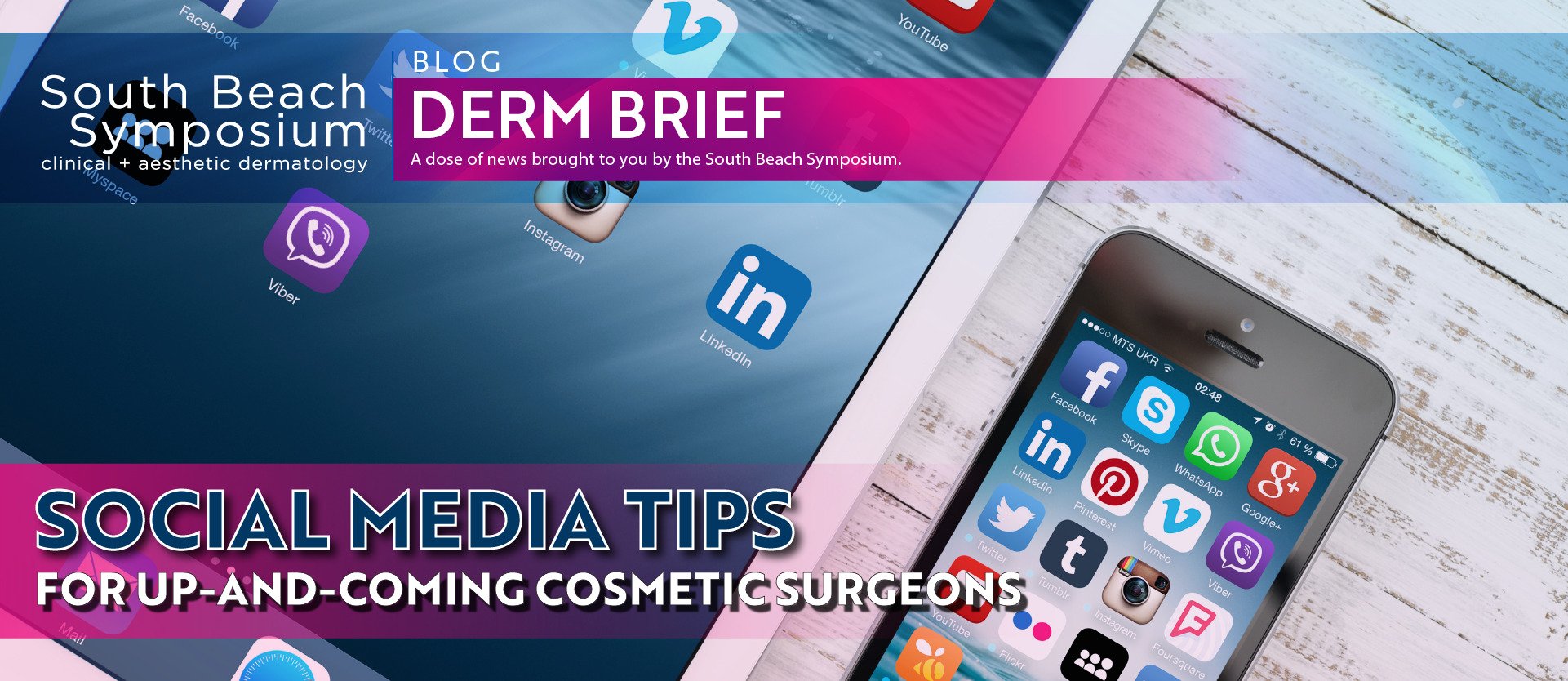Despite the global adoption of social media as a tool for both personal and professional use, many medical specialties – including aesthetic medicine – and physicians still resist the trend, regarding social platforms as superfluous or unprofessional. Research suggests that social media can add great value as a communication tool able to connect patients with practices and providers, who can, in turn, use it to interact with and educate a wider audience. Studies have shown that 65% of Americans and up to 90% of young adults use social media regularly, while a growing number of businesses are taking their marketing efforts to platforms such as Instagram and Facebook.
Some cosmetic surgeons have been early adopters, hoping to pave the way for their colleagues by developing guidelines to help experienced, board-certified plastic surgeons use social media according to professional standards. However, there is little guidance for emerging surgeons and residents looking to use social media for professional purposes, according to a paper published in Plastic and Reconstructive Surgery.
The study discusses ethics and current literature on social media use by up-and-coming cosmetic surgeons, making recommendations on how to best navigate the space during training and after graduation. To assist young surgeons in optimizing their social media presence while remaining professional, the paper’s authors outlined the following suggestions:
Social Media Tips
1. Avoid Deception
One of the most important rules for social media use in a professional setting is to avoid deceiving the audience. Posting false information or results not only causes patients to lose trust in the practitioner or practice, but it can also lead to disciplinary action. According to the American Society of Plastic Surgeons Code of Ethics, a member may be at risk for disciplinary action:
“…if the member uses, participates in, or promotes the use of any public communication or private communication containing photographs, images, or facsimiles of persons (1) who have received the services advertised, but who have experienced results that are not typical of the results obtained by the average patient, without clearly and noticeably disclosing that fact; (2) before and after receiving services, which use different light, poses, or photographic techniques to misrepresent the results achieved by the individual; and (3) that falsely or deceptively portray a physical or medical condition, injury, disease, including obesity, or recovery of relief therefrom.”
2. Offer the Right to Refuse
An ethical social media practice for sharing patient photography, testimonials, or video content requires patient consent as well as offering the right of refusal. Providers should be cautious in approaching patients, ensuring that they are aware of their rights and that they are not obligated to grant permission.
3.Separate Personal and Professional
According to the paper, trainees and emerging surgeons should refrain from using their personal social media accounts for professional purposes. Separating personal and professional pages is necessary to maintain an appropriate social presence; it can also help boost audience reach and impressions by promoting professional pages alongside other medical specialty accounts.
4. Choose Wisely
Managing many professional social media accounts can be a daunting and time-intensive task. Young cosmetic surgeons should focus on one or two platforms for optimal results in reaching their target audience and maintaining a consistent social presence.
5. Publish What Patients Want
The paper’s authors emphasize the importance of publishing interesting content geared at a target audience. Publishing content that patients want to view will not only help grow a social media following but can also increase engagement, boosting overall visibility. Patients often prefer to see a variety of posts on plastic surgeons’ feeds, including practice information, before-and-after photos, treatment videos, and blog posts, according to a study cited by the paper. However, trainees and residents should maintain caution when posting certain content, as creating original posts with patient images can be legally problematic. Due to consent issues, authors recommend reposting or sharing such content from attending surgeons instead.
6. Embrace and Educate
Social media platforms are valuable tools for spreading awareness, informing and educating audiences, as well as sharing interesting content. Using hashtags, such as #PlasticSurgery, can help increase the visibility of social media posts and facilitate public education on related topics. Additionally, content focused on answering questions about plastic surgery procedures and offering tips for home skincare can engage viewers with accurate and useful information.
In an era of continuous and constant dissemination of content, cosmetic surgeons – regardless of experience level – are in a position to offer their expertise to the public. Rather than shying away from social platforms, up-and-coming cosmetic surgeons are encouraged to grow their social media presence, as long as it is in a professional and ethical manner. As evidenced by research, the expanding prevalence of social media has created a unique avenue for marketing and public education, which can greatly benefit physicians of all specialties.
















